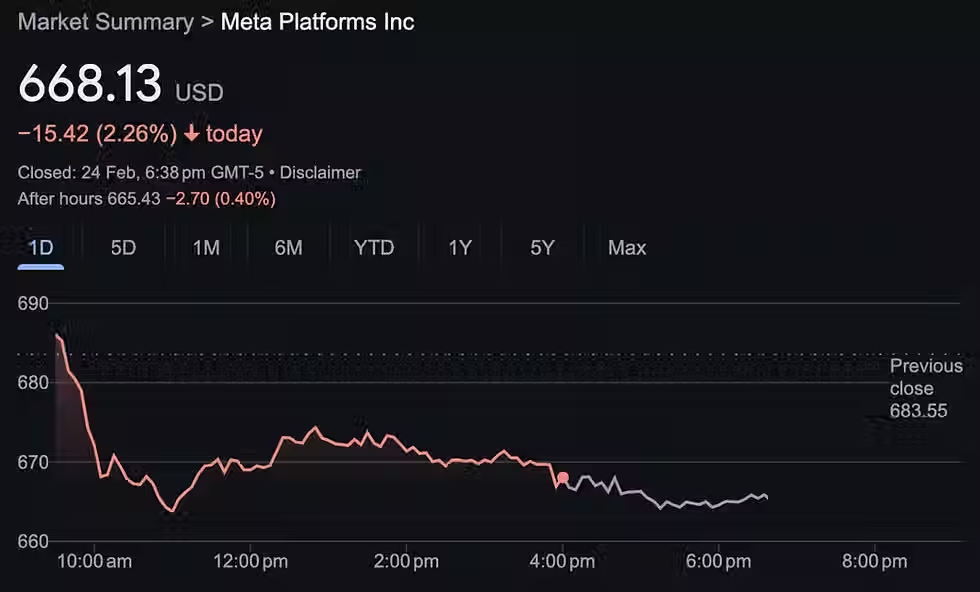Stocks vs. Bonds: A Comprehensive Beginner’s Guide
- Buffett Online School

- Oct 30, 2023
- 6 min read

You aspire to increase your wealth, so you’re here. While for many, owning a business or investing in real estate remains a distant dream, placing a portion of your funds into assets like stocks and bonds is an achievable goal for anyone with disposable income.
Historical data has shown that investing in stocks and bonds serves as an effective means to accumulate wealth. As per statistics gathered by Vanguard, a portfolio consisting of 60% stocks and 40% bonds, referred to as a 60/40 portfolio, has yielded an average compounded annual return of 8.8% from 1926 to 2019.
This may not appear substantial at first glance, but an annual average of 8.8% compounded return effectively doubles your investment every nine years.
At Buffett Online School, we also believe in investing in great companies you understand, and utilizing Free Investing Resources to help you start your financial freedom and investment journey is one of the best ways to learn.
This article will discuss what stocks and bonds are, their fundamental differences, and which one you should invest in.
What are Stocks?
Stocks or equities give you ownership or share of a company. When you buy stocks, you're essentially buying a small portion of the company, represented by what we call "shares." The greater the number of shares you purchase, the more significant your ownership stake in the company becomes.
For instance, if a company's stock is $50 per share, you decide to invest $2,500 (which equates to 50 shares at $50 each). If a company’s stock price goes up, you can benefit from it, which is one of the reasons you can build wealth.
Some companies also provide money to their stockholders regularly, and we call this money "dividends."
Even though stocks can make you a lot of money, they can also lose value quickly. To make money with stocks, you must accept that it also comes with risks. That’s why you should consider your risk tolerance and preference before investing.
On average, the stock market goes up about 10% every year. But in some years, it can go up much or drop a lot, like in 2022 when it fell more than 18%. The good news is that you can still make a decent amount of money if you invest in stocks for a long time.
Types of Stocks
Different categories of stocks reflect various aspects of the companies they represent and how investors can profit from them. Here are different types of stocks that you can consider in your investment portfolio.
Growth stocks are companies experiencing rapid earnings, revenue, or sales growth, surpassing the market average. Investors purchasing growth stocks anticipate their prices to continue rising and are willing to assume higher risks for the potential of greater returns.
Some well-known growth stocks include Amazon, Google's parent company Alphabet, Meta (formerly Facebook's parent), and Tesla.
Value stocks tend to be more affordable compared to growth stocks. Essentially, these are stocks that investors believe are currently undervalued based on their historical performance and are expected to rebound in the future.
Income stocks provide dividends to shareholders. They generally entail lower risk and offer lower potential rewards than growth stocks. Nonetheless, they can still yield modest appreciation over time and pay dividends. Walmart and Microsoft are illustrative examples.
Large-cap stocks are linked to companies with a total market capitalization exceeding $10 billion. Such stocks are part of benchmark indexes like the S&P 500 and Russell 1000.
Midcap stocks are associated with companies possessing a market capitalization ranging from $2 billion to $10 billion. They are featured in the S&P 400 index.
Small-cap stocks are affiliated with companies having a market capitalization between $250 million and $2 billion. The Russell 2000 index represents this category.
The introduction of fractional shares has empowered investors to acquire less than a whole share of a stock. This option is beneficial when a stock's price is prohibitively high, yet you want to include it in your investment portfolio. You can purchase fractional shares for as little as $5.
What are Bonds?
Bonds are a form of lending money to a company or government. There's no ownership involved, and you don't acquire any shares. In simple terms, when you purchase a bond, you're essentially loaning money to a company or government, and in return, they agree to pay you interest on that loan for a specified period.
At the end of this period, they will repay you the total amount you initially invested. However, it's important to note that bonds are not entirely risk-free. If the company experiences bankruptcy during the bond's term, you may cease to receive interest payments and might not recover your entire initial investment.
For instance, let's imagine you buy a $2,500 bond with a 2% annual interest rate for ten years. It means you would receive $50 in interest payments each year, typically distributed evenly throughout the year. Over ten years, you'd accumulate $500 in interest, and at the end of this period, you'd also receive your initial investment of $2,500. Holding onto a bond until it matures is commonly called "holding until maturity."
Unlike stocks, where you speculate on a company's sales or revenue growth, buying a bond is a bet that the company will continue to meet its debt obligations. Companies with better credit ratings are more likely to meet their financial commitments and typically issue investment-grade bonds.
On the other hand, companies with lower credit rating issues, known as junk bonds, carry greater risk but often offer higher yields. While the value of a bond can fluctuate while you hold it, it differs from a stock in that if you keep the bond until its maturity date, you will still receive the same amount of interest.
Types of Bonds
There exist three primary categories of bonds for investment:
Municipal bonds, often called munis, are issued by state, city, and local governments. While these are generally of high quality, there is no guarantee of repayment to investors.
Government bonds, also known as Treasurys, are high-quality bonds supported by the full faith and credit of the federal government. They assure repayment of principal and interest to investors if held until maturity. According to Itkin, these are safer than lending money to a family member.
Corporate bonds are the riskiest type, as they are issued by private and public companies, which may face difficulties repaying their debts. Corporations issue bonds for various purposes, including funding research and development, purchasing ne
Key Differences of Stocks and Bonds
Here is a comparison table between stocks and bonds so you can clearly understand which is suitable for your needs and goals.

Should You Invest in Stocks or Bonds?
Now that you understand the distinction between stocks and bonds, choosing which investment type aligns best with your financial objectives falls to you.
Typically, bonds are most suitable for individuals who lean towards a conservative approach and are approaching retirement age. Bonds offer a steady and dependable income stream with relatively lower levels of risk.
If you have more time to work towards your financial goals, opting for stock market investments is likely a more favorable path than bonds. Investing in stocks provides more significant potential for growth, enabling you to withstand the ups and downs of the market.
A target date fund might be worth considering for those who remain uncertain. These funds offer comprehensive solutions, investing in portfolios that blend stocks and bonds to align with your retirement objectives and risk tolerance.
When you're younger, the target date fund primarily allocates investments to stocks. However, as you approach your target retirement age, the fund adopts a more conservative stance by shifting investments toward bonds.
These funds offer portfolio diversification, making them suitable for passive investors who prefer a hands-off approach.
Join Our Free 2-Day BOS Value Investing MBA
At the Buffett Online School, we believe in learning the right investing mindset and system, so we can start cultivating emotional detachment and grow our wealth safely and substantially in the long run.
Our next 2-day BOS MBA Value Investing Online Bootcamp is happening soon! We will teach you how to use Warren Buffett's proven investing method to maximize your portfolio.
Remember, you can cultivate the right investing mindset and unlock your potential to build wealth through intelligent investing. Together, we can create a network of educated investors who make informed decisions and contribute to their financial well-being!
In the meantime, feel free to check out some of our blog posts to continue learning. You can also join our BOS Telegram channel for more investing insights!





I blog frequently, and I really want to thank you for the detailed information. This article piqued my interest. I’m going to keep checking your site weekly for new updates.
bakery mattoon il
Blogging is an art, and you’ve mastered it. Great job on this post—keep the valuable content coming!
where does money come from
Excellent write-up! I’ve always enjoyed your articles. You’re such an exceptional writer, always on point. This article is loaded with valuable information.
trucking small business advisory
This article answered many of my questions. I’m starting a new blog, and this article will be a key reference for me. Thanks for sharing such informative content.
commercial van interiors
The depth of analysis in this piece is impressive. You’ve covered all the key points thoroughly. Excellent job!
public accounting firms